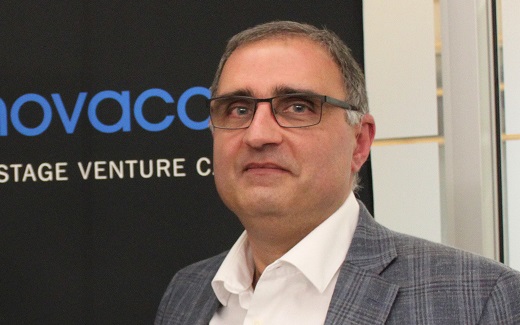A week after academic research in Britain validated the premise of its business model, Halifax-based Densitas Inc. has received regulatory clearance for its automated breast density software DM-Density to be sold in Australia.
The company issued a press release Tuesday saying that the Australian Therapeutic Goods Administration had approved the product. Densitas will sell its software through Diagnostic Imaging Australia, which is the Australian distributor for the company’s Cambridge, Mass.-based sales partner, EnvoyAI.
Densitas’ technology works by processing images from mammograms to analyze breast density. It is an important factor in the mammography process since dense breasts can easily mask cancerous cells. Dense breast tissue is also linked to higher chances of breast cancer so if doctors are aware of a patient’s breast density, they can better allocate their time and resources to ensure she gets appropriate care.
Australia has about 12 million women and 1.7 million are screened for breast cancer using mammography every two years, said the statement. Breast cancer is the second most common cause of cancer mortality in Australian women aged 50 to 74, with about 45 deaths per 100,000 women. The Australian Government has increased its commitment to the early detection of breast cancer by recently expanding the BreastScreen Australia target age to include women 70 to 74.
“We are pleased to be able to offer Densitas’ software in Australia, as it fills a need for radiologists looking for a reliable and standardized breast density solution,” said Diagnostic Imaging Australia Director Phillip Cahill. “The deployment of the Densitas algorithm on the Envoy AI platform is a natural fit that radiologists will find to be seamless.”
ABK Raised $9M in Equity Funding, Borrowed $3M
Added Densitas CEO Mohamed Abdolell: "We are excited that doctors and patients in Australia can now benefit from our advanced machine learning algorithms to assess breast density. Our entry into the Australian market marks further expansion of our technology globally.”
The software is used in Nova Scotian hospitals and clinics so any woman who has mammography tests in the province will have her information processed by DM-Density.
A week earlier, Densitas issued a press release saying researchers from the University of Manchester have published a review of breast density measurement methods in the journal Breast Cancer Research. The study clinically validates Densitas’ automated breast density measurement software as a practical solution for use in breast cancer risk models, said the statement.
This study demonstrates that while visual and semi-automated density assessments show strong relationships with breast cancer risk they are not practical for use in population-based screening.
“We are very pleased to see that our breast density measurement software has been independently validated to be strongly associated with breast cancer risk by this eminent research team from the University of Manchester,” said Abdolell. “Several upcoming scientific and poster presentations at ECR 2018 in Vienna . . . will further confirm the results of the Manchester study.”










